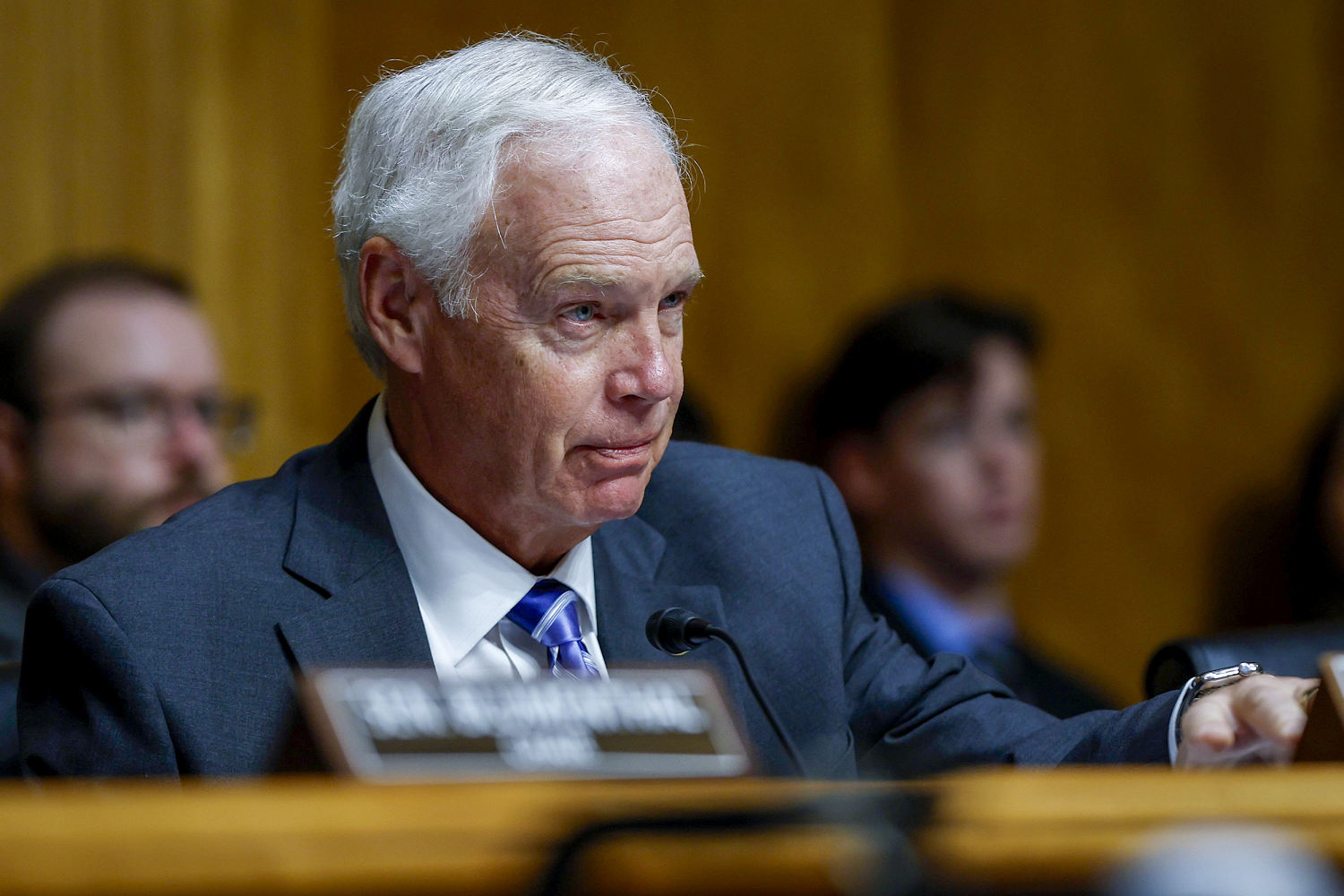
WASHINGTON — As Home Republicans scramble to corral the votes to move a large invoice for President Donald Trump’s agenda, their Senate counterparts are making clear the rising package deal received’t fly as written when it reaches them.
Sen. John Hoeven, R-N.D., was categorical that the product popping out of assorted Home committees can’t move the Senate because it presently stands.
“No. We’ll make modifications,” Hoeven stated. “We’ve been speaking with the Home and there’s plenty of issues we agree on. … However there’ll be modifications in various areas.”
It wouldn’t shock Home members to be taught that their Senate colleagues need to put their very own fingerprints on the ultimate multitrillion-dollar package deal. However Republican senators have already begun to determine quite a lot of provisions within the Home measure that they’re concentrating on for revisions — from Medicaid issues to scrub power funding to spectrum coverage and general pink ink.
Sen. Ron Johnson, R-Wis., got here out in opposition to the rising Home laws this week, saying it can explode the U.S. price range deficit.
“I don’t see any situation the place it’s going to be deficit-neutral. That’s my downside,” he informed NBC Information. “By my calculation, that is going to extend the deficit by $4 trillion.”
“The quantity that they’re seeking to cut back spending is about 1.3%. It’s a rounding error. It’s fully insufficient,” Johnson stated as he insists federal spending be at the least lowered to pre-pandemic ranges.
Republicans have 53 senators, which means they will solely lose three votes earlier than the invoice collapses int he chamber, as they don’t have any hope of profitable Democrats. They’ve already misplaced Sen. Rand Paul, R-Ky., who needs steeper cuts. And Democrats are dialing up the warmth on GOP makes an attempt to chop power funding within the Inflation Discount Act, highlighting the 2022 regulation’s financial and nationwide safety advantages.
Sen. Lisa Murkowski, R-Alaska, led a letter to Senate Majority Chief John Thune, R-S.D., final month with three different Republicans warning that “termination” of sure clear power tax credit enacted in 2022 “would create uncertainty, jeopardizing capital allocation, long-term mission planning, and job creation within the power sector and throughout our broader financial system.”
The Home committee tasked with writing the tax provisions of the package deal is searching for to repeal vital subsidies for electrical autos and goals to section out different clear power tax incentives that had been handed within the Inflation Discount Act, which was signed into regulation by then-President Joe Biden.
On Wednesday, Murkowski informed NBC Information she, John Curtis, R-Utah, Thom Tillis, R-NC, and Jerry Moran, R-Kansas, “made clear that we would have liked to take a cautious strategy to the power tax credit and ensure that we don’t lose out on among the good investments that we constructed.”
Sen. Josh Hawley, R-Mo., has additionally been warning in opposition to Medicaid cuts because the Home invoice seeks to impose work necessities and supplier funding limits which have been panned by critics.
“I can’t assist Medicaid profit cuts,” Hawley informed NBC Information on Tuesday, including that he has “issues with items” of the Home invoice due to what it might imply to rural hospitals in his state.
He later wrote on X: “I don’t need to see rural hospitals shut their doorways as a result of funding received lower. I additionally don’t like the thought of a hidden tax on the working poor. That’s why I’m a NO on this Home invoice in its present type.”
Hawley’s issues are shared by Murkowski in addition to Sen. Susan Collins, R-Maine, who voted in opposition to the price range framework final month, citing issues about Medicaid cuts harming her state.
One other difficulty Senate Republicans need to revise are provisions that Home Vitality and Commerce Chair Brett Guthrie, R-Ky., stated would renew “the Federal Communications Fee’s spectrum public sale authority and supply sources to modernize federal information-technology methods,” and save $88 billion.
“I’ve had an opportunity to really take a look at the language on the spectrum difficulty. It clearly must be corrected,” stated Sen. Mike Rounds, R-S.D.
Sen. Deb Fischer, R-Neb., stated the coverage wants “to go a lot additional, a lot additional” and he or she “can’t settle for it because it got here out of the” Home Vitality and Commerce Committee.
Speaker Mike Johnson, R-La., is hoping to steer the measure by way of the Home Funds Committee on Friday and move all the invoice by way of the chamber — with some modifications — earlier than Memorial Day.
Sen. Thom Tillis, R-N.C., who faces re-election subsequent yr in a aggressive state, stated the Senate might want to overview the Home language on Medicaid cuts, clear power cash and different insurance policies earlier than making a call.
Tillis additionally stated the Senate isn’t enthused by the draft Home invoice’s coverage to boost the cap on the state and native tax deduction to $30,000, up from $10,000. In contrast to within the Home, there are not any GOP senators within the high-tax blue states the place “SALT” is a giant difficulty.
“I believe that’s an space the place we’re going to wish some consideration,” Tillis stated.

